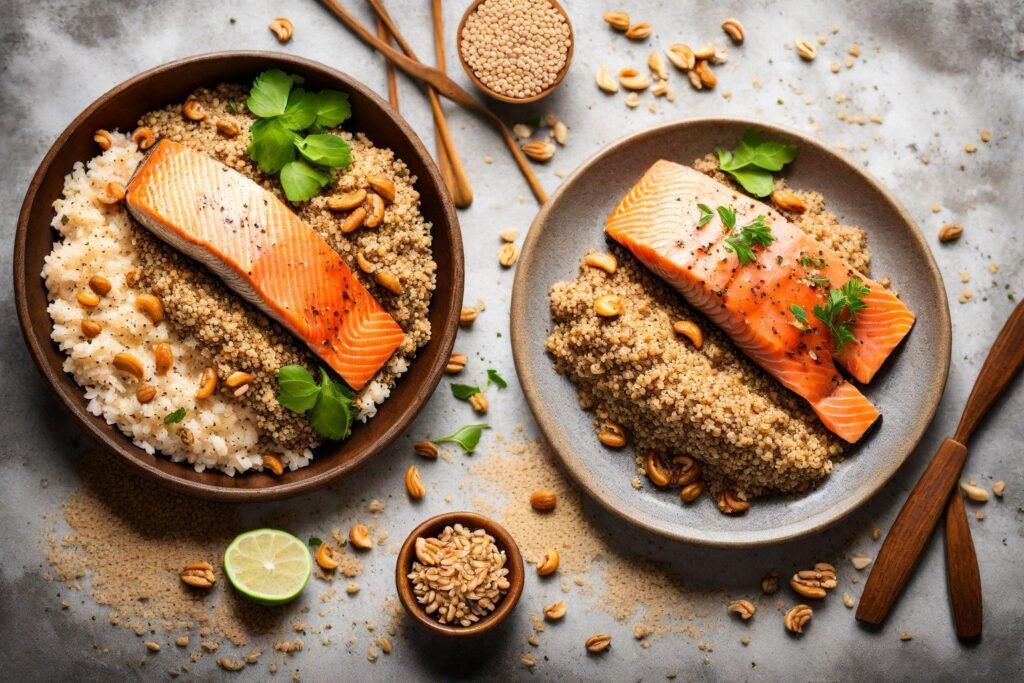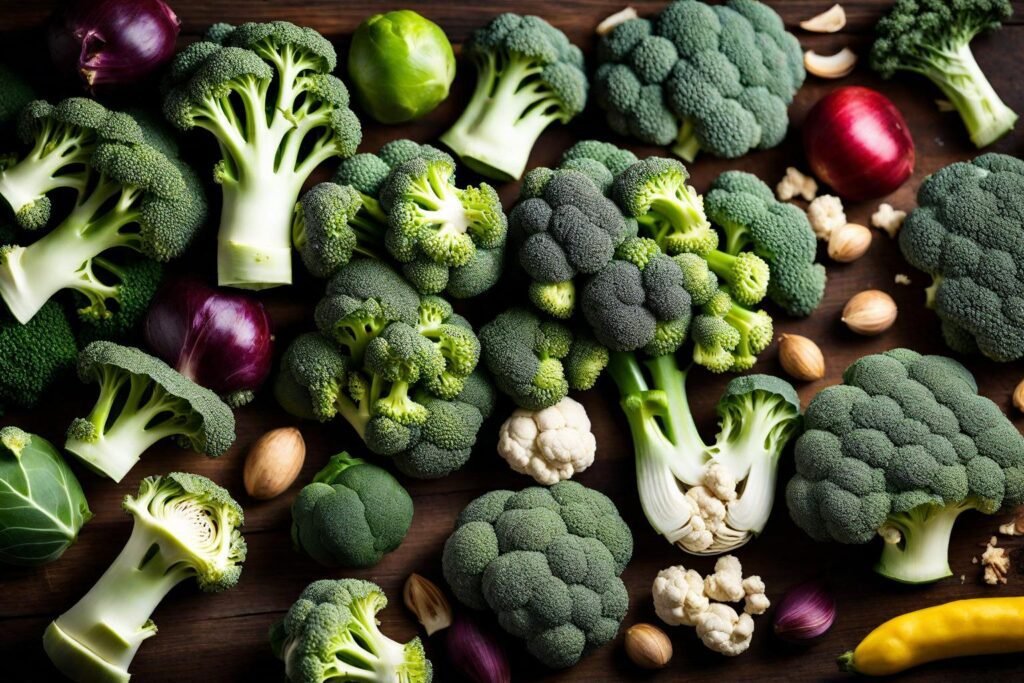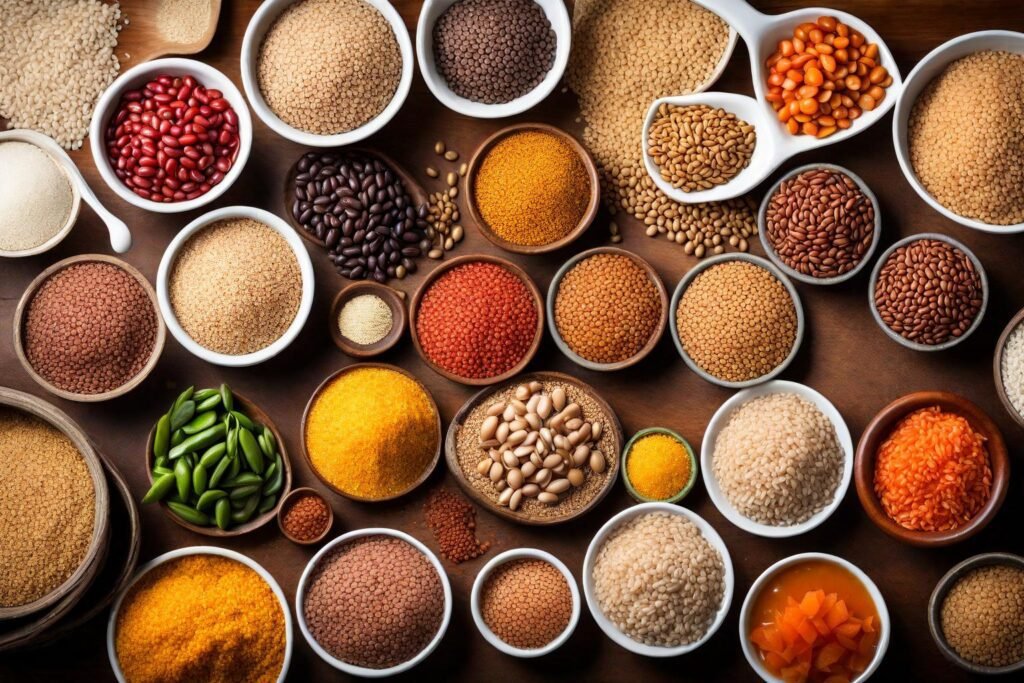
Introduction:
21-Day Fatty Liver Diet Plan: Are you dealing with a fatty liver and want to make it better? Great! This guide is all about a 21-day diet plan to help your liver get healthier. We’ll talk about eating good foods and making some lifestyle changes to help your liver work better and make you feel better overall. Let’s get started!
Understanding Fatty Liver Disease
Before we talk about the diet plan, let’s understand what fatty liver disease is all about. It happens when too much fat builds up in your liver cells, which can make them not work as well. Things like eating unhealthy foods, not moving around much, being overweight, and drinking too much alcohol can make it worse. If you don’t do anything about it, fatty liver disease can lead to serious problems like liver inflammation and scarring.
The Importance of Nutrition in Liver Health:
Eating the right foods is super important for taking care of your fatty liver. When you eat a healthy diet full of important nutrients, it helps your liver heal and reduces inflammation. The key is to eat lots of nutrient-packed foods and cut back on processed foods and sugary stuff. That’s the foundation of a good diet plan for your liver.
Day 1–7: Kickstart with Cleansing Foods:

Start your 21-day journey by cleaning out your system with healthy, whole foods. Kick off your mornings with warm lemon water to help with digestion and getting rid of toxins. During the day, focus on eating lots of fresh fruits, leafy greens, and lean proteins. Choose colorful veggies like kale, spinach, and bell peppers, which have lots of good stuff like antioxidants and vitamins that are important for keeping your liver healthy.
Day 8–14: Fuel Your Body with Nutrient-Rich Meals
As you progress into the second week, focus on fueling your body with nutrient-rich meals to sustain energy levels and promote cellular repair. Incorporate omega-3 fatty acids from sources such as salmon, chia seeds, and walnuts, which possess anti-inflammatory properties beneficial for liver function. Additionally, include whole grains like quinoa and brown rice, along with legumes such as lentils and beans, to provide a steady supply of fiber and essential minerals.
Day 15–21: Embrace Detoxifying Superfoods

In the final stretch of your 21-day journey, emphasise detoxifying superfoods to revitalise your liver and enhance detoxification processes. Integrate cruciferous vegetables like broccoli, cauliflower, and Brussels sprouts, renowned for their sulphur compounds that support liver detoxification pathways. Incorporate herbs such as turmeric and milk thistle into your meals, known for their potent antioxidant and anti-inflammatory effects.
Lifestyle Strategies for Optimal Liver Health
Beyond dietary modifications, adopting healthy lifestyle habits can amplify the benefits of your 21-day fatty liver diet plan. Prioritise regular physical activity to promote blood circulation and weight management, both crucial for liver health. Aim for at least 30 minutes of moderate exercise daily, incorporating activities like brisk walking, cycling, or yoga.
Supplementing Your Diet with Liver-Supportive Nutrients
21-Day Fatty Liver Diet Plan: In addition to dietary adjustments, supplementing your diet with specific nutrients can further enhance liver health. Consider incorporating vitamin E, vitamin C, and vitamin D supplements, all of which possess antioxidant properties that combat oxidative stress and inflammation in the liver. Moreover, magnesium and zinc supplements support various metabolic processes essential for liver function, aiding in detoxification and cellular repair.
Hydration: The Key to Liver Detoxification

Maintaining adequate hydration is paramount for supporting liver detoxification processes. Aim to consume at least 8–10 glasses of water daily to facilitate the flushing out of toxins and waste products from your system. Additionally, herbal teas such as dandelion root and green tea offer hydrating benefits while promoting liver health through their antioxidant and diuretic properties.
Managing stress for liver wellness
21-Day Fatty Liver Diet Plan: Managing stress is really important for keeping your liver healthy. When you’re stressed a lot, it can make inflammation worse and make your liver not work as well. To help with stress, try things like meditation, deep breathing exercises, or yoga every day. Also, make sure you get enough sleep—aim for 7-8 hours each night. That way, your body and liver can do all the repairs they need to do.
Monitoring Progress and Seeking Professional Guidance
Throughout your 21-day fatty liver diet plan, monitor your progress closely and pay attention to any changes in symptoms or overall well-being. Keep track of your dietary habits, physical activity levels, and any supplements you’re taking to assess their impact on your liver health. If you experience persistent symptoms or concerns, don’t hesitate to seek guidance from a healthcare professional or a registered dietitian specialising in liver health.
21-Day Fatty Liver Diet: Plan Long-Term Liver Health
While the 21-day fatty liver diet plan serves as a valuable kickstart to your journey towards liver rejuvenation, it’s essential to embrace long-term lifestyle changes for sustained health benefits. Gradually integrate the dietary principles outlined in the plan into your everyday life, making conscious choices to prioritise liver-supportive foods and habits. Remember, investing in your liver health today lays the foundation for a vibrant and thriving future.
21-Day Fatty Liver Diet Plan: FAQS
What is a good menu for fatty liver?
A. A nutritious menu tailored for fatty liver includes an array of wholesome options to support liver health. Start your day with a hearty breakfast featuring oatmeal topped with fresh berries or a colorful fruit salad. For lunch, enjoy a leafy green salad with grilled chicken or tofu, along with a side of quinoa or brown rice. Snack on crunchy vegetables with hummus or a handful of nuts for a midday boost. Dinner can be a flavorful stir-fry with plenty of vegetables and lean protein, served over whole grain noodles or cauliflower rice. Don’t forget to drink plenty of water or herbal teas throughout the day to stay hydrated. Steering clear of processed foods, saturated fats, and excessive sugars will further promote liver wellness.
How can I reduce my fatty liver in 2 weeks?
A. While you might not see big changes right away, you can begin to improve your fatty liver in just two weeks by making some healthy changes to your diet and lifestyle. Try to eat a balanced diet with lots of fruits, veggies, lean meats, and whole grains. Reduce your intake of processed foods, sugary drinks, and alcohol.Get moving with some exercise—aim for about 30 minutes of moderate activity most days. And don’t forget to drink plenty of water, manage stress, and make sure you’re getting enough sleep.
What foods help cure fatty liver disease?
A. Foods that help cure fatty liver include those rich in antioxidants, fibre, and essential nutrients. Some examples include fruits like berries, apples, and oranges; vegetables such as spinach, kale, and broccoli; lean proteins like chicken, fish, and tofu; whole grains like quinoa and brown rice; and healthy fats from sources like avocados, nuts, and seeds. Additionally, incorporating herbs and spices like turmeric and cinnamon can also support liver health.
Can I eat chapati for fatty liver?
A. Yes, chapati can be part of a healthy diet for fatty liver. However, it’s essential to choose whole wheat or multigrain chapatis over refined flour options. Whole wheat chapatis provide fibre, vitamins, and minerals, which can support liver health and overall well-being. Remember to moderate your portion sizes and pair chapatis with other nutritious foods like vegetables and lean proteins.
Is rice okay for fatty liver?
A. Yes, rice can be included in a fatty liver diet, but it’s best to opt for whole-grain varieties like brown rice or wild rice. Whole grains offer more fibre and nutrients compared to refined grains, which can help regulate blood sugar levels and promote overall liver health. Be mindful of portion sizes, and pair rice with plenty of vegetables and lean proteins for a balanced meal.
Is curd good for liver fat?
A. Yes, curd, also known as yoghurt, can be beneficial for liver health. It is a good source of protein, calcium, and probiotics, which are beneficial bacteria that support gut health. Probiotics may help reduce inflammation and improve liver function. Opt for plain, unsweetened curd to avoid added sugars, and consider incorporating it into your diet as part of a balanced meal or snack.
Conclusion: A New Beginning for Your Liver Health
21-Day Fatty Liver Diet Plan: In conclusion, embarking on a 21-day fatty liver diet plan offers a transformative opportunity to revitalise your liver and reclaim your health. By adopting a nourishing diet, incorporating liver-supportive nutrients, managing stress, and embracing healthy lifestyle habits, you pave the way for optimal liver function and overall well-being. With dedication, consistency, and a commitment to self-care, you can embark on a new beginning for your liver health and embark on a journey towards lasting vitality. Cheers to your liver’s health and your vibrant future ahead!
